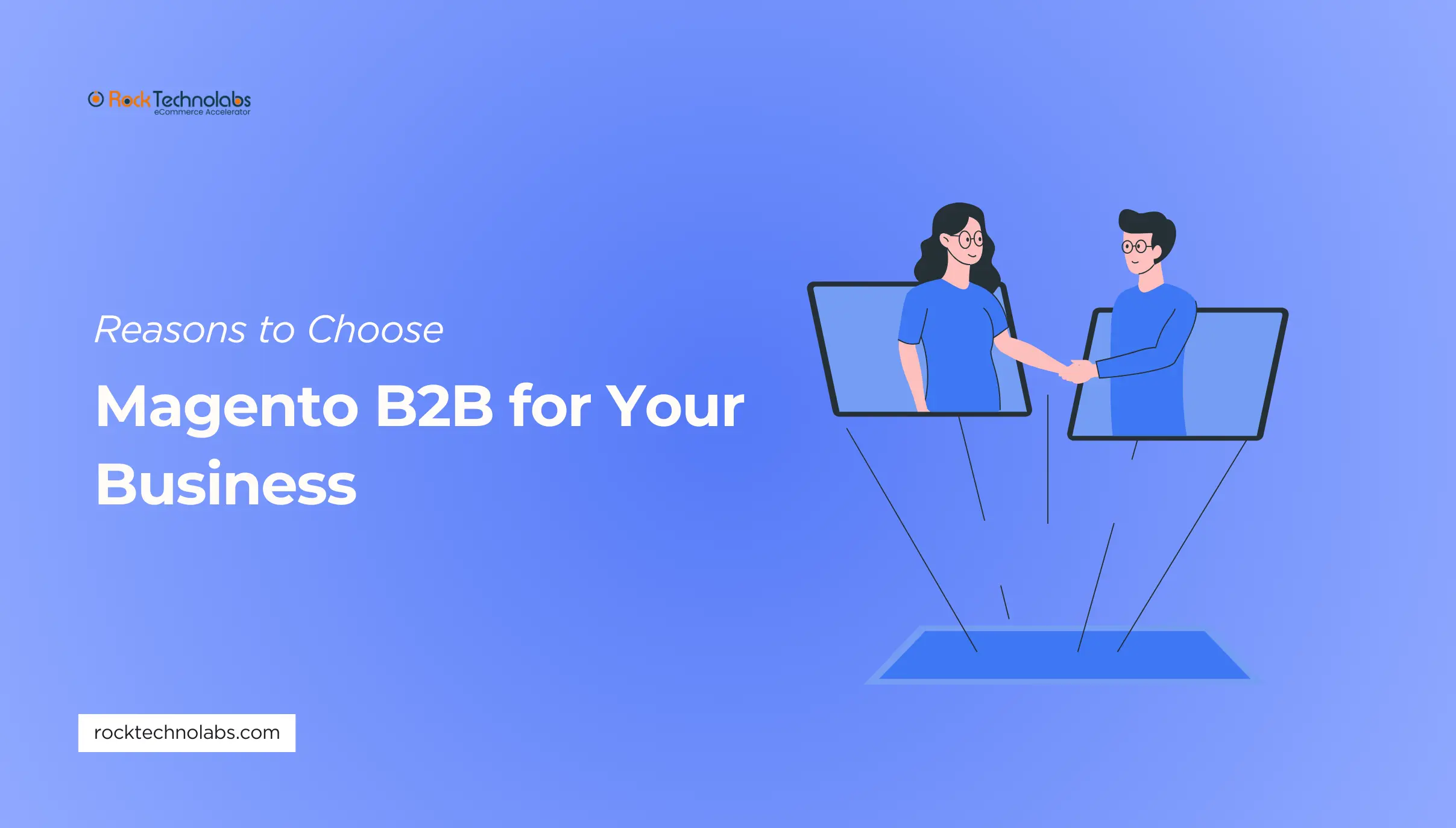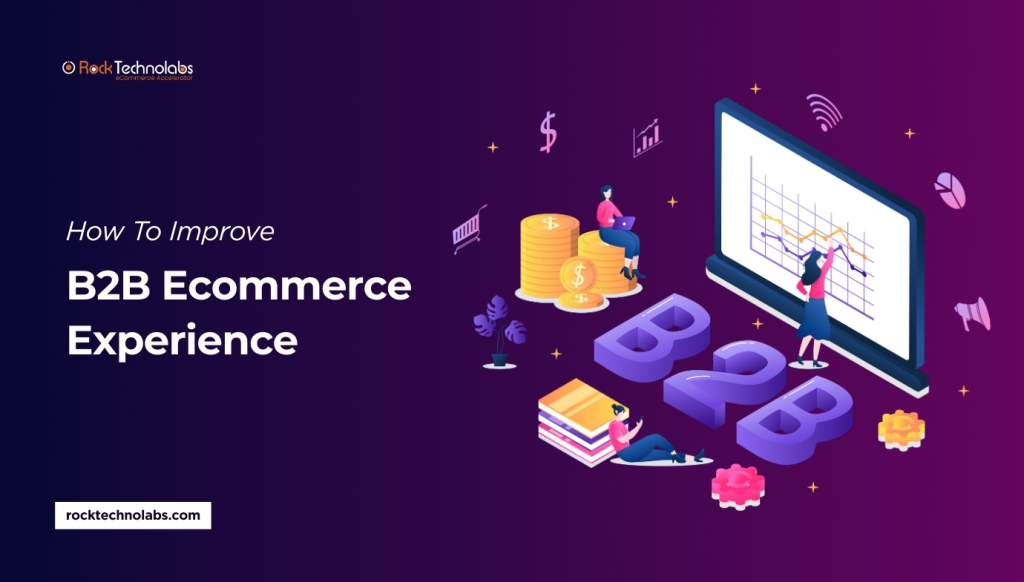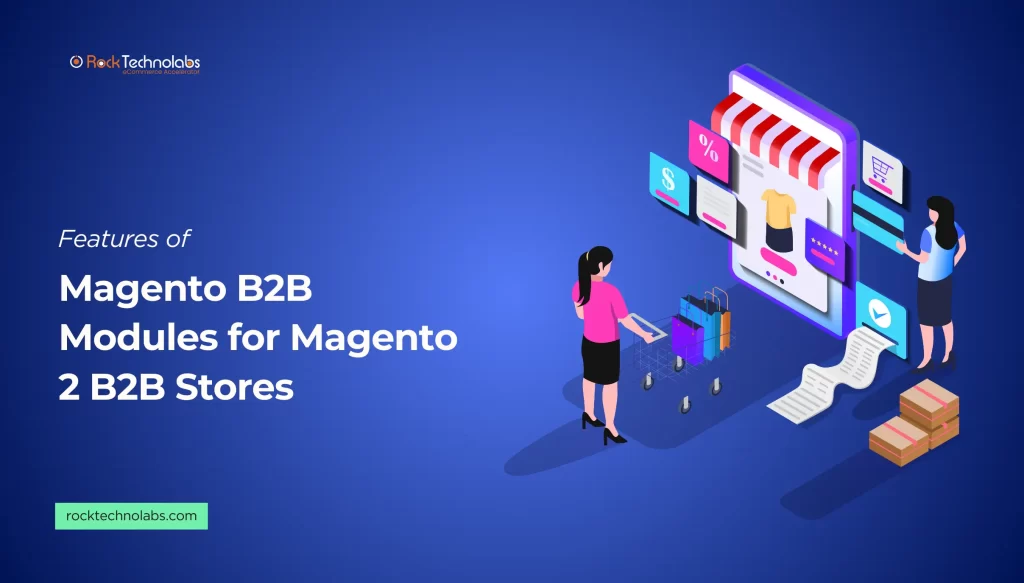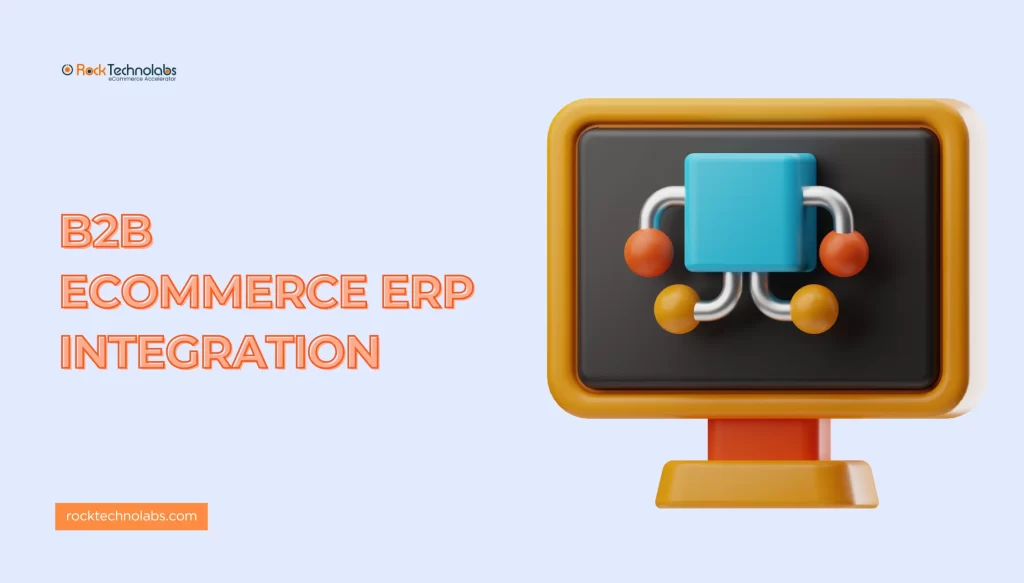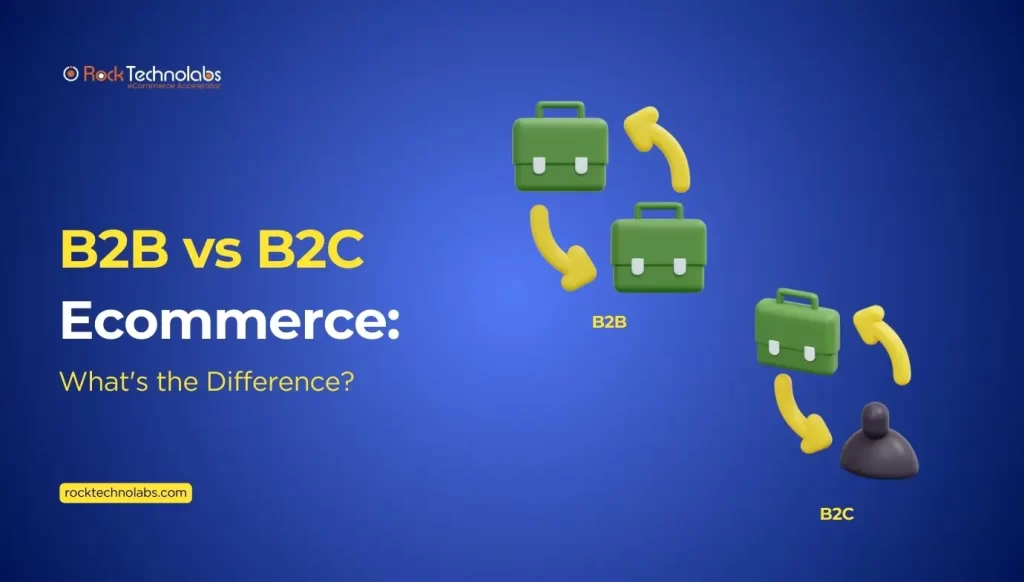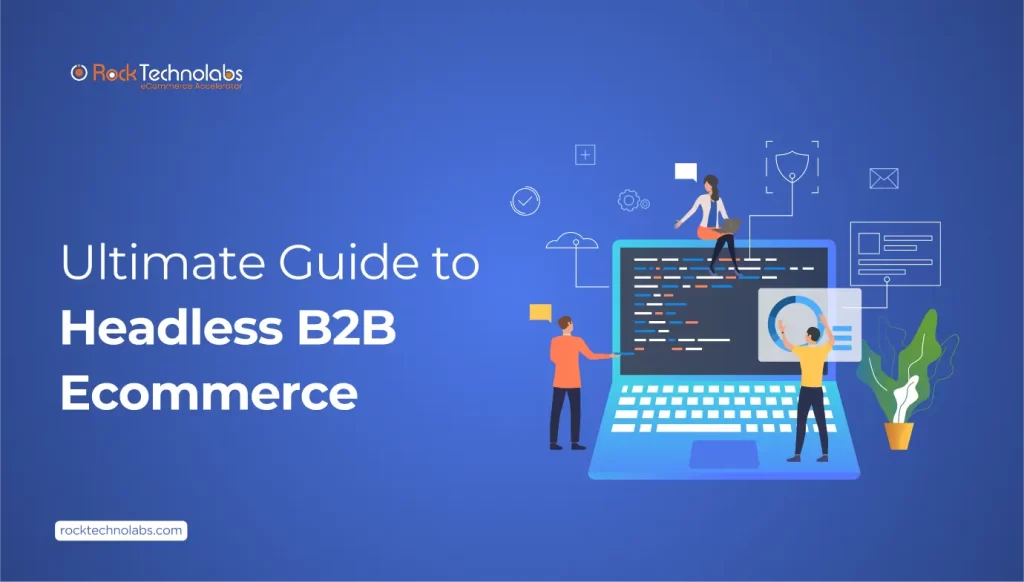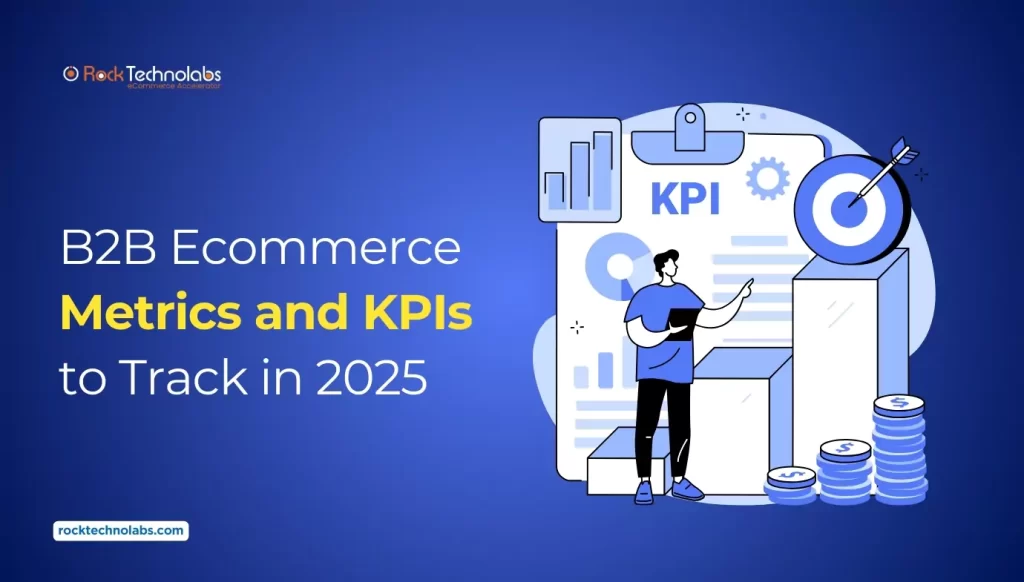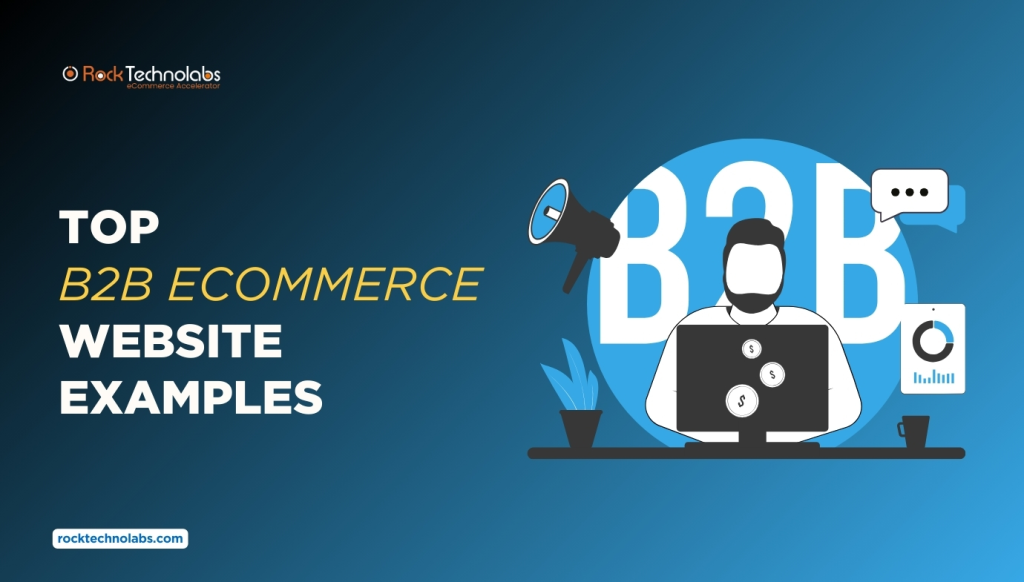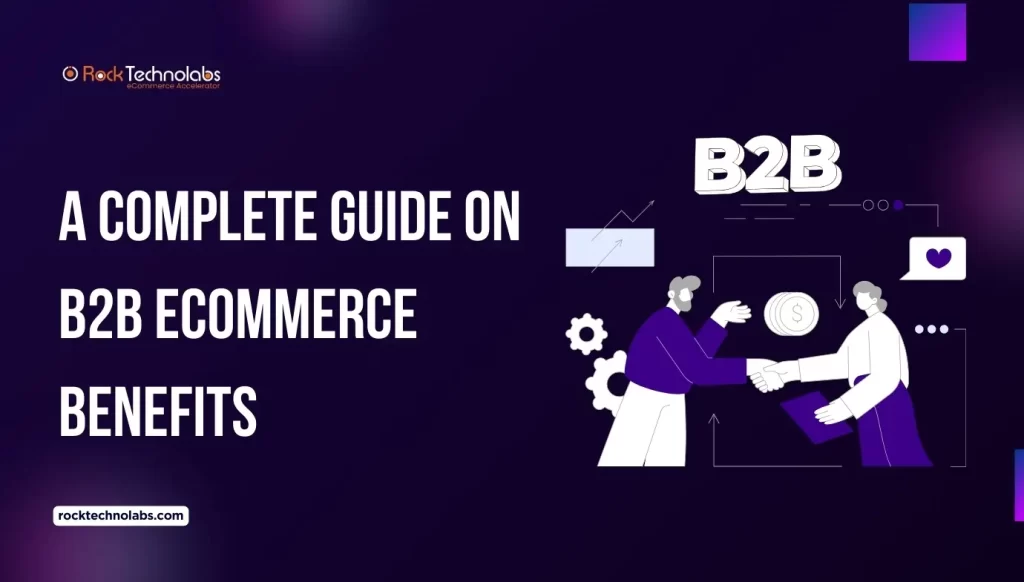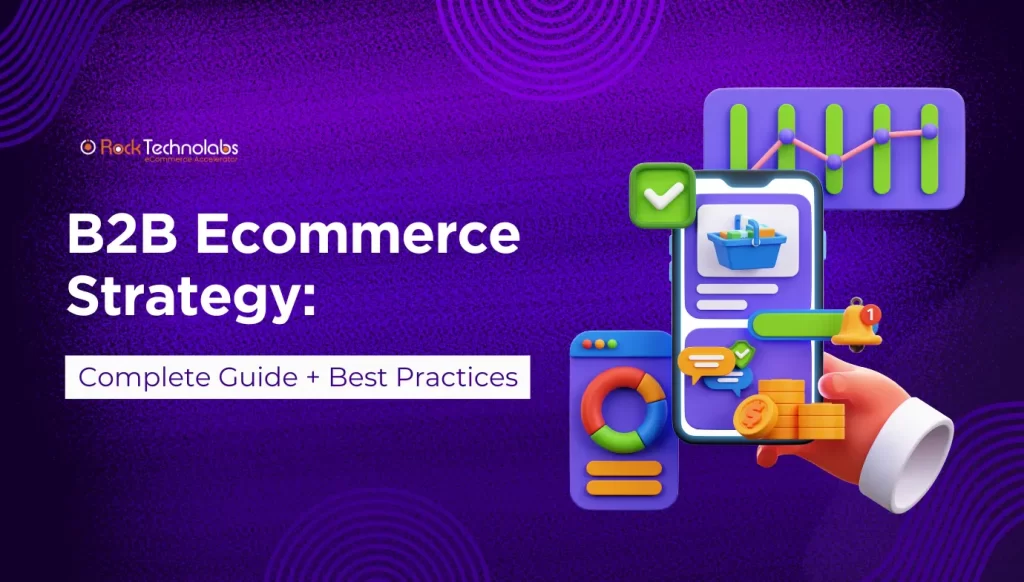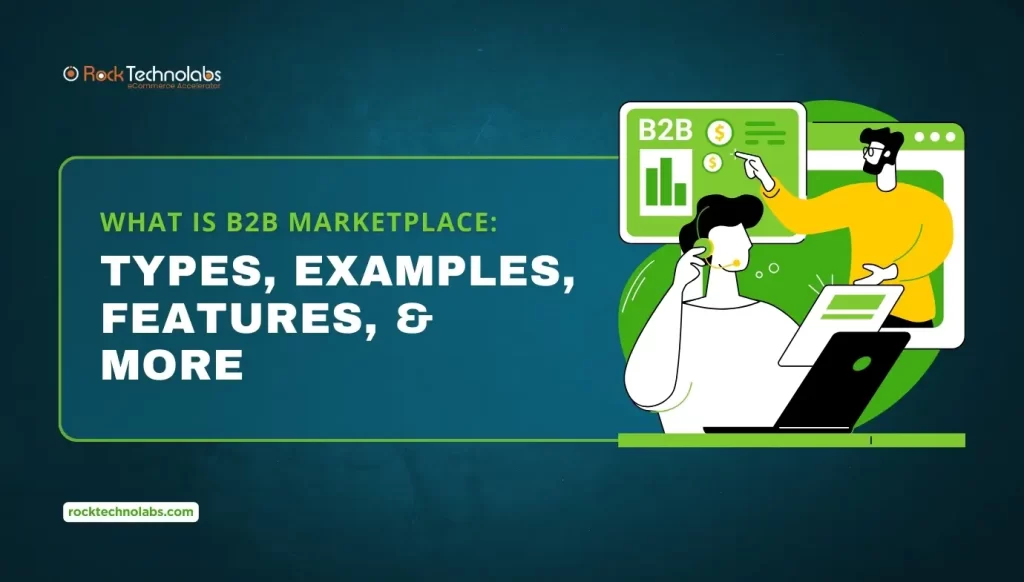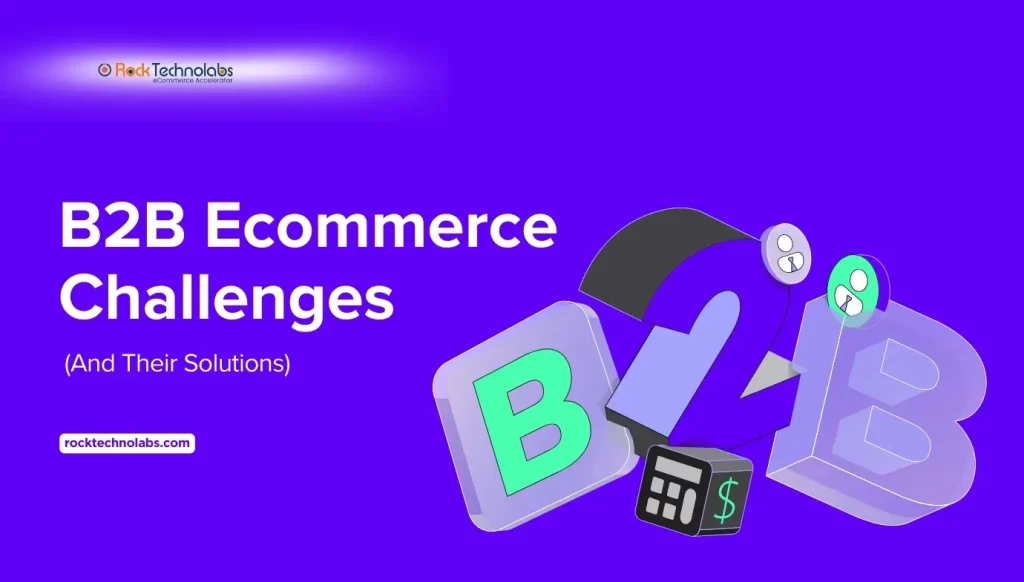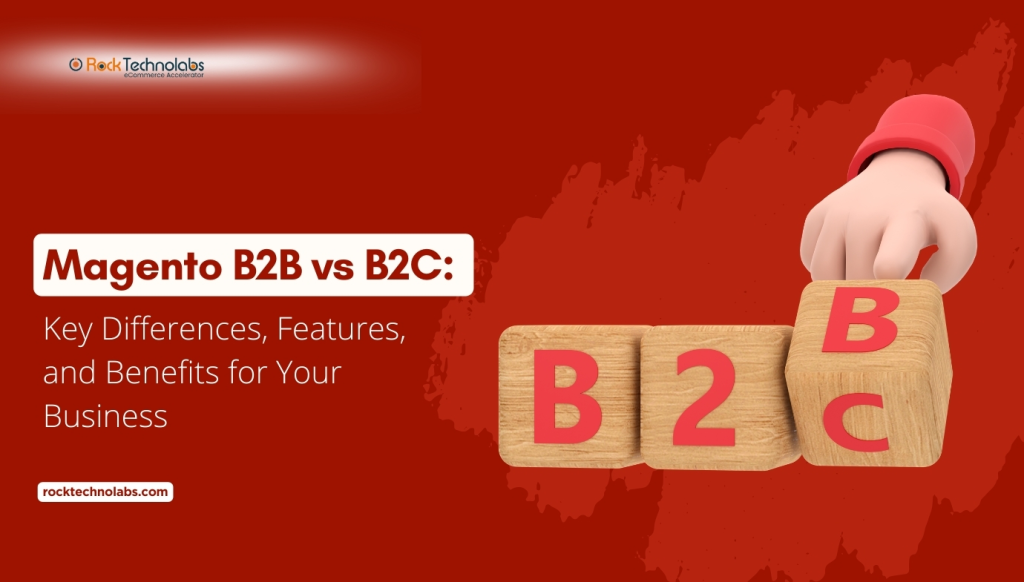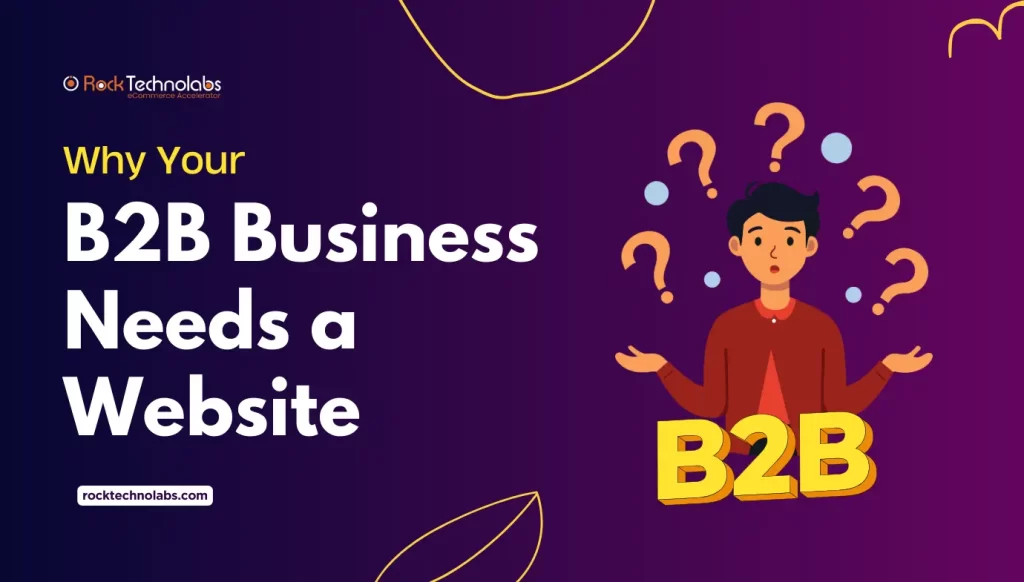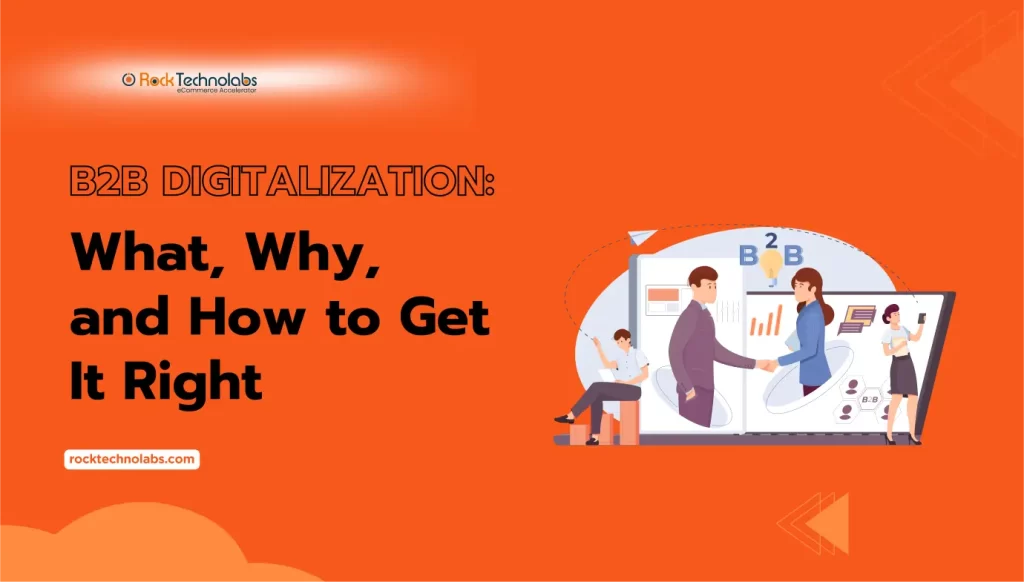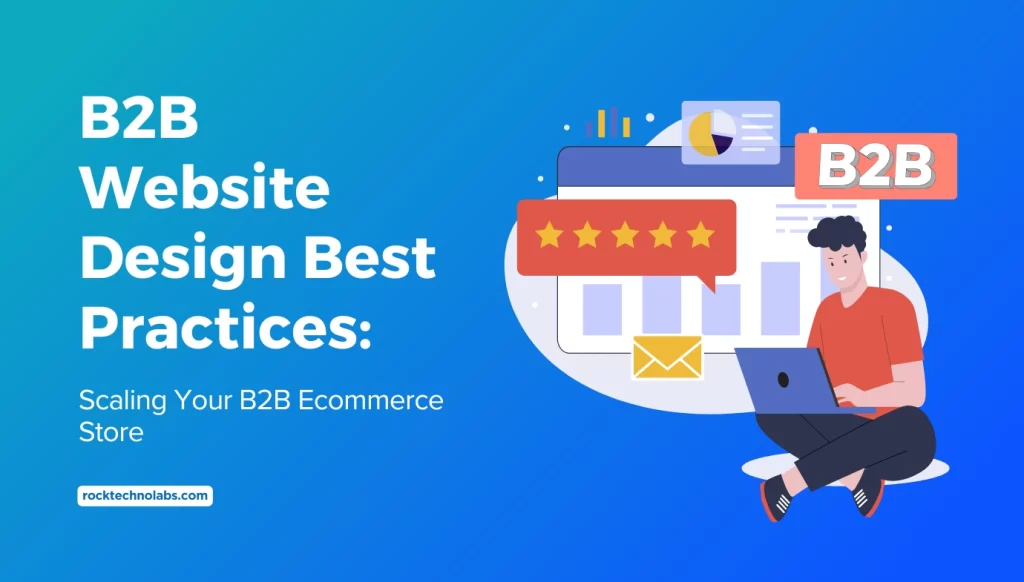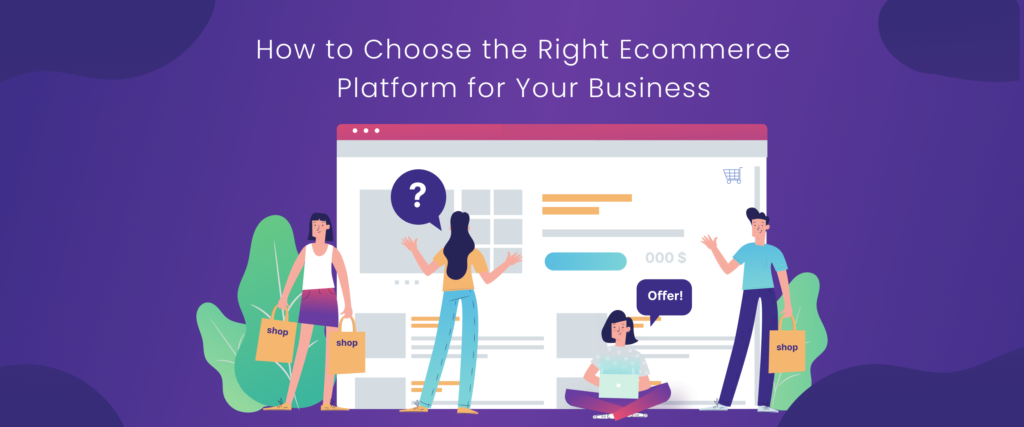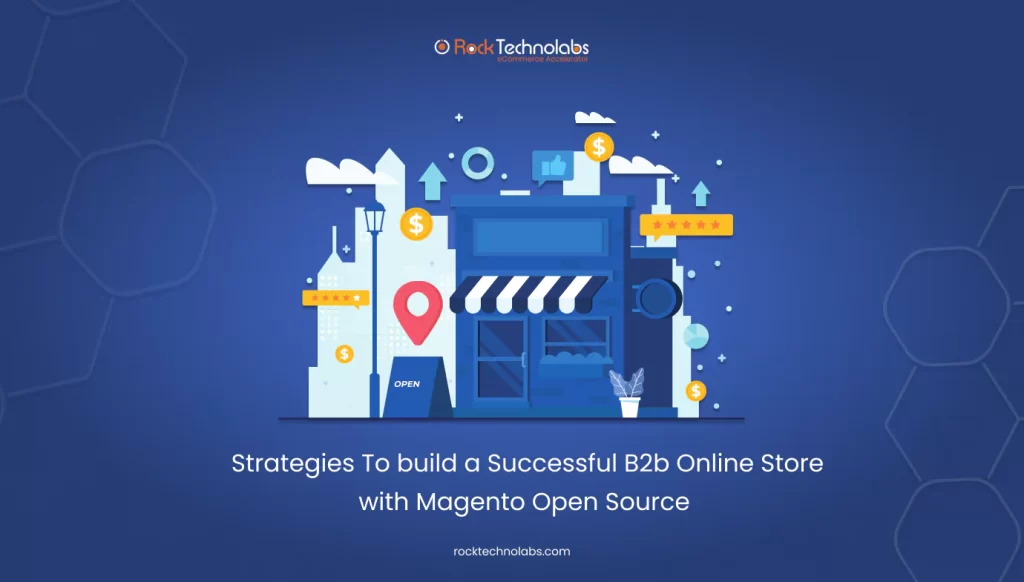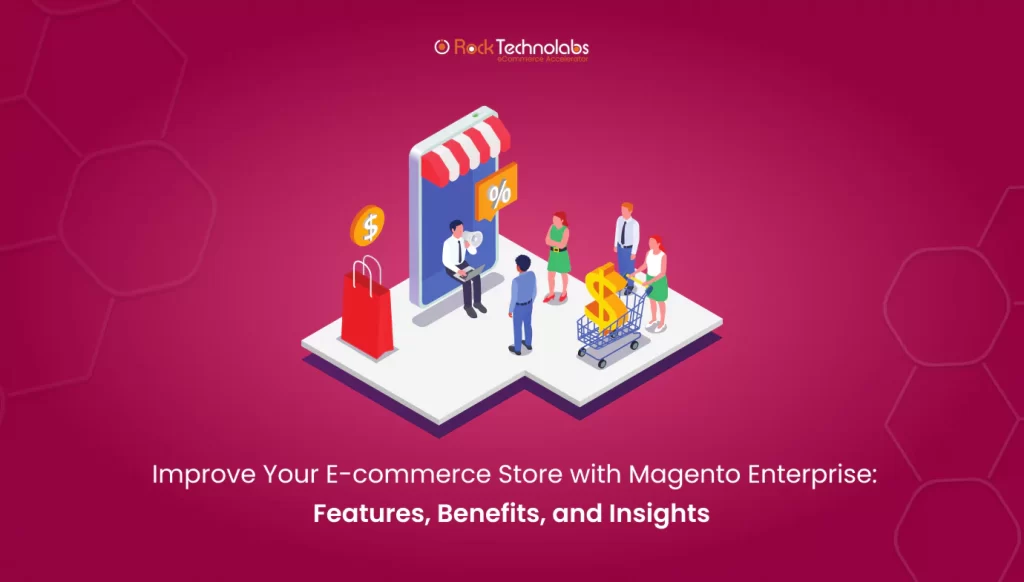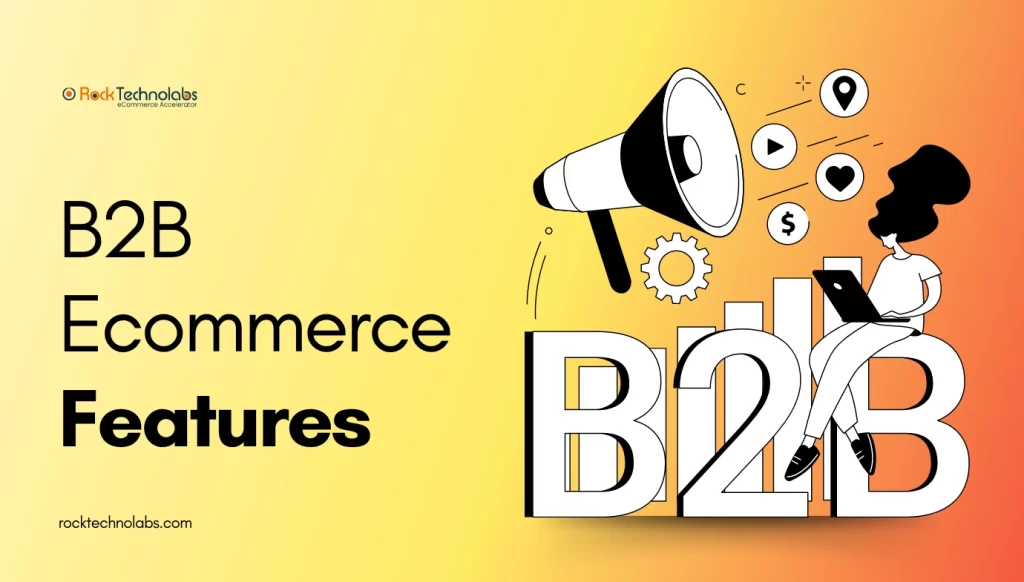B2B online sales are growing. By one estimate, global B2B ecommerce will reach $20.9 trillion by 2024, far outpacing B2C growth. Today, B2B buyers want to use online channels to purchase.
In fact, 90% of B2B buyers conduct product research online.
These trends mean the future of business buying is digital. Companies that invest in eCommerce see dramatically higher sales growth and customer satisfaction.
Given this shift, choosing the right platform is critical. A modern Magento B2B ecommerce solution provides the flexibility and power to meet sophisticated buyer needs.
Magento (now Adobe Commerce) is known for its robustness and scalability in enterprise ecommerce. It can handle massive product catalogs, high traffic, and complex business rules.
According to Adobe’s recent release notes, Magento Open Source 2.4.6 includes “significant performance and scalability enhancements”, demonstrating the platform’s ongoing evolution to support larger and faster business sites.
As B2B markets grow, companies need an ecommerce solution that can scale globally while offering a frictionless buying experience.
A dedicated Magento B2B site allows businesses to create personalized portals, manage customer specific catalogs and prices, and automate complex processes.
With more buyers preferring online buying over traditional sales calls, a modern B2B storefront isn’t a luxury – it’s essential.
Magento’s open architecture and thriving ecosystem of extensions ensure that as digital trends evolve, businesses can adapt quickly.
Explore Magento’s B2B capabilities today to see how it can power your growth!
The Magento Platform: Scalability and Flexibility for B2B
Magento (Adobe Commerce) is a leading platform for B2B ecommerce because it combines enterprise-grade power with open flexibility.
Built on a modular, PHP-based architecture, Magento is proven in large-scale operations.
Hundreds of B2B companies – from industrial suppliers to distributors – trust Magento to run millions of transactions per day.
The platform’s architecture supports multi-server deployments, cloud hosting, and advanced caching to handle peak loads.
By selecting Adobe Commerce (formerly Magento Enterprise), you get built-in B2B tools and premium support.
For smaller companies, Magento Open Source (Community Edition) can be extended with B2B modules and third-party integrations (for example, to add features like credit limits or quote management).
In either case, Magento’s API driven design makes it easy to connect back end systems (ERP, CRM, PIM) and front end channels (web, mobile, marketplaces).
This extensibility helps businesses implement their unique B2B ecommerce strategies, whether expanding internationally or launching new sales channels.
Magento’s recent releases underscore its enterprise readiness. The Magento 2.4.8 update added PHP 8.4 support and performance optimizations (e.g., faster GraphQL cart and category responses), showing a commitment to speed and reliability.
For B2B, faster page loads and robust infrastructure mean happier buyers and fewer lost deals. In short, the Magento platform delivers the performance, customization, and developer friendly framework that fast-growing B2B businesses demand.
Ready to learn how Magento B2B can transform your online business?
Contact our Magento experts or request a personalized demo today!
7 Reasons to Choose Magento Commerce B2B
Magento Commerce (Adobe Commerce) includes powerful B2B features that are out of the box.
These are designed to support business buyers’ needs, streamline big-ticket transactions, and mirror common B2B workflows.
Key features include:
1. Customer-specific price books and catalogs
You can assign custom price lists and catalog assortments to each customer or company.
This means each buyer sees only the products and prices agreed in their contract.
2. Bulk ordering & requisition lists
Business customers often reorder in bulk.
Magento lets buyers upload CSVs of SKUs, use “quick order” forms, or save requisition lists of frequently purchased items.
With one-click reorders, they can repurchase entire lists without searching each item.
3. Negotiated quotes and ordering
Magento provides a complete quote management system.
Buyers can request quotes online, and sellers can respond with custom quotes, including line-item discounts.
They can even create standing quotes (pre-approved pricing templates) for repeat agreements.
Once a quote is accepted, it seamlessly converts to a purchase order on the site.
4. Account hierarchies and roles
Companies can set up parent-child company accounts with multiple buyers and approvers.
For example, a corporate HQ account can have regional subsidiary accounts under it.
Each buyer can be assigned a role (Buyer, Approver, etc.), and approval workflows keep purchases on budget.
5. Self-service company portal
B2B buyers get a dedicated portal to manage orders, invoices, shipments, and returns.
They can track past orders, view order history, and manage user permissions.
At the same time, sales reps can use assisted selling – logging in as a customer (with permission) to place orders or quotes on their behalf.
6. Flexible payment and invoicing
Magento supports various B2B payment methods, including credit/debit cards, digital wallets, and account credit.
By integrating extensions or custom code, companies often add net terms or invoice payments so trusted buyers can purchase on credit.
7. Multi-channel and brand consistency
Magento allows a single backend to power multiple storefronts or brand sites, each with its own theme, catalog, and pricing.
This is ideal for manufacturers selling to different channels (direct and distributors) or across global markets, maintaining brand consistency while tailoring experiences.
With these Magento Commerce B2B features, businesses can create streamlined, Amazon-like buying experiences for corporate customers.
Personalized catalogs, one click bulk orders, and quick quote-to-order processes all reduce friction and sales cycle time.
Curious how these features work for your industry?
Talk to our Magento B2B specialists!
Supporting Digital Transformation and Overcoming B2B eCommerce Challenges
Magento addresses common B2B ecommerce challenges head-on. For example, complex pricing structures and custom catalogs are natively supported (as above), eliminating one major hurdle in selling online.
The platform also offers advanced search and navigation so buyers can find products quickly; this is critical since a recent industry report found that poor search and navigation are top pain points for B2B shoppers.
Magento’s integration with technologies like Elasticsearch and AI driven merchandising means customers discover products with relevant, auto completed search and personalized recommendations.
With Magento, businesses can also modernize buyer workflows. Online approval routing, budget controls, and configurable checkout (e.g., requiring minimum purchase quantities) make the digital experience resemble each customer’s offline processes.
According to eCommerce experts, B2B buyers today expect a frictionless, tailored experience similar to B2C.
Magento meets these expectations with mobile-responsive design, headless capabilities (via PWA Studio for app-like websites), and built-in content management to create rich, engaging catalogs and landing pages.
Security and data integration – another frequent challenge – are also priorities.
Magento’s secure architecture and support for two-factor admin logins keep customer data and transactions safe. Meanwhile, Magento’s rich APIs allow full integration with ERP, CRM, and PIM systems to provide a single source of truth.
This unification helps overcome silos: for example, inventory and pricing from an ERP can be synced to the storefront in real time, so customers always see accurate stock and contract rates.
In short, by providing a robust, extensible platform, Magento enables firms to overcome the typical hurdles of B2B digital sales – from rigid legacy systems to disparate data – and fully embrace eCommerce as part of their digital transformation strategy.
Maximize your digital transformation with Magento B2B.
Contact us to see how Magento Commerce integrates with your systems and drives efficiency.
B2B eCommerce Trends & the Case for a Dedicated Site
Recent studies make it clear: B2B commerce is becoming permanently digital. Over the past few years, the share of eCommerce in total B2B transactions has surged – for example, online sales by manufacturers and distributors jumped 17% in 2023.
Forecasts call for US B2B online sales to exceed $4.6 trillion by 2025 (more than double today’s levels). Why? Because a growing majority of B2B buyers prefer the speed and convenience of online shopping. In fact, 70% of buyers say online purchasing is more convenient.
With millennials and Gen Z now holding more buying power, business buying habits mirror consumer habits. A recent report found that millennials dominate B2B’s digital buying decisions, and 74% of B2B purchases involve online transactions.
These buyers expect intuitive search, mobile access, and self-service. Poor online experiences simply drive them to competitors.
Given these trends, having a dedicated B2B website (rather than just a generic catalog site) is essential. A standalone B2B site lets you tailor every aspect – from login portals and personalized catalogs to checkout flows and payment terms – to the needs of business clients.
It also allows specialized marketing and content for B2B audiences. For example, manufacturers targeting engineers can publish technical guides and support integration documentation directly on their store.
Magento is ideal for building these focused B2B sites. Its multi-site management lets you separate consumer and wholesale sites under one roof if needed, each with a unique design and features.
You can localize for global markets (multiple languages and currencies) and implement corporate branding. Trends like omnichannel B2B buying and marketplaces (e.g., Amazon Business) mean you also want a strong direct site as the backbone of your sales.
Staying ahead of B2B ecommerce trends such as AI powered personalization, headless commerce, and B2B marketplaces requires a flexible platform. Magento’s roadmap already includes integrations with AI tools and an open cloud architecture that supports modern deployment.
In short, a dedicated Magento B2B site positions your company to capitalize on every emerging trend and buyer expectation.
Stay ahead of trends with Magento B2B.
Ready to build a cutting edge B2B storefront? Our experts can guide you every step of the way.
Real Business Benefits: Growth, Efficiency, and Better CX
Implementing Magento for B2B commerce delivers tangible benefits:
Increased Sales and Larger Orders: By providing an always-on digital storefront, businesses sell 24/7 and capture orders they would otherwise lose.
Features like quick reordering and quotes shorten sales cycles, resulting in higher average order values. Many merchants see double-digit revenue growth after moving B2B sales online.
Operational Efficiency: Magento automates manual tasks (price updates, order processing, invoicing), reducing errors and saving time.
For instance, ERP integration ensures inventory and pricing sync instantly, so customer service teams can focus on strategy instead of data entry. Self-service features like account management and quoting cut down support calls.
Improved Customer Experience (CX): B2B customers get the convenience and visibility they crave. They can order easily, track shipments, and manage approvals in one portal. Personalization (special catalogs and pricing) makes them feel valued.
Surveys show that 85% of B2B buyers will switch suppliers after a poor digital experience, so offering a top tier Magento storefront can significantly boost customer loyalty.
Scalability and Future Proofing: Magento’s flexibility means your site can grow with your business. Whether you’re adding thousands of SKUs, expanding internationally, or shifting strategy (e.g., adding a new product line), the platform can adapt. Upgrades and security patches keep the site stable and compliant.
Better Data and Insights: With Magento’s analytics and integrations, businesses gain a real time view of order histories, customer trends, and inventory levels.
This insight supports more wiser decisions in marketing and sales, for example, identifying which customer segments to target with promotions or which products are trending.
In essence, Magento B2B turns your website into a strong sales engine. Companies report not only revenue gains but also stronger relationships with buyers, because clients appreciate the transparent pricing, convenient ordering, and tailored service.
Eliminating friction from complex B2B transactions, Magento helps companies compete on service excellence, not just price.
Transform your B2B business with Magento. Contact us to get started with a Magento Commerce B2B demo and see the results for yourself!


